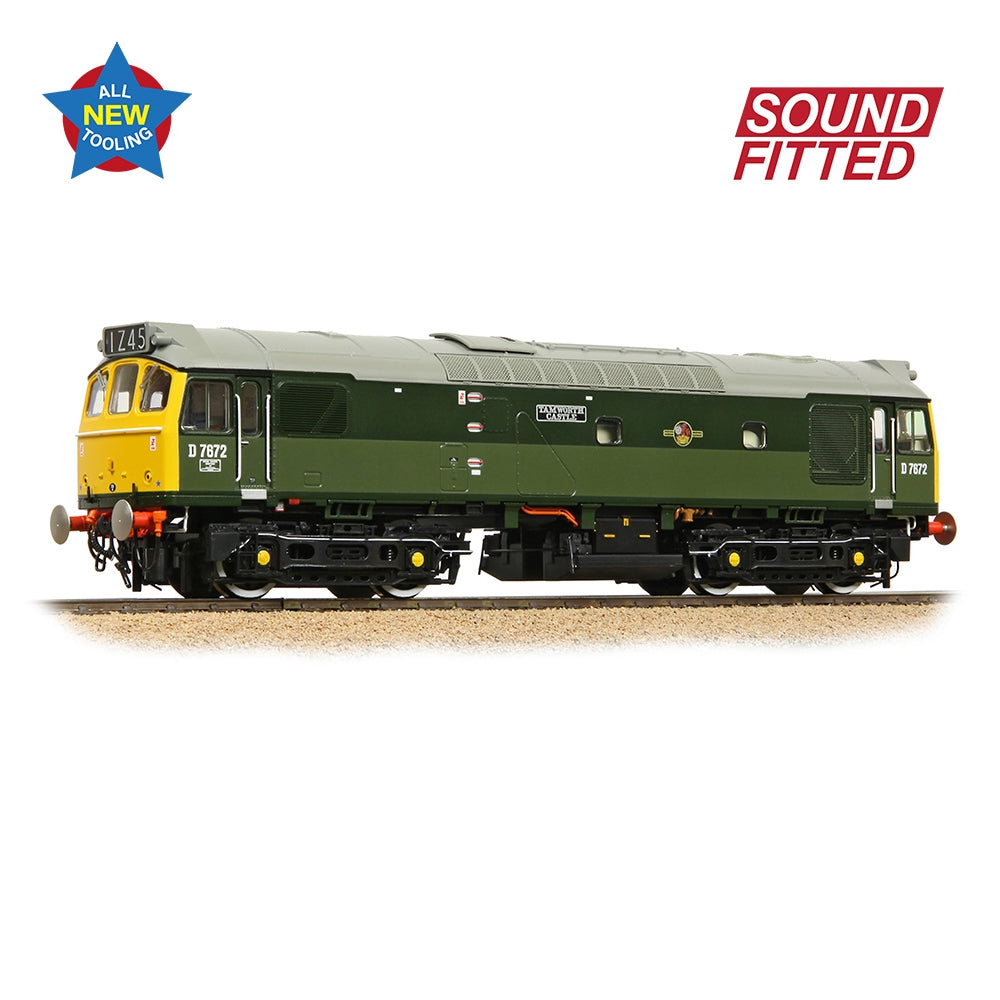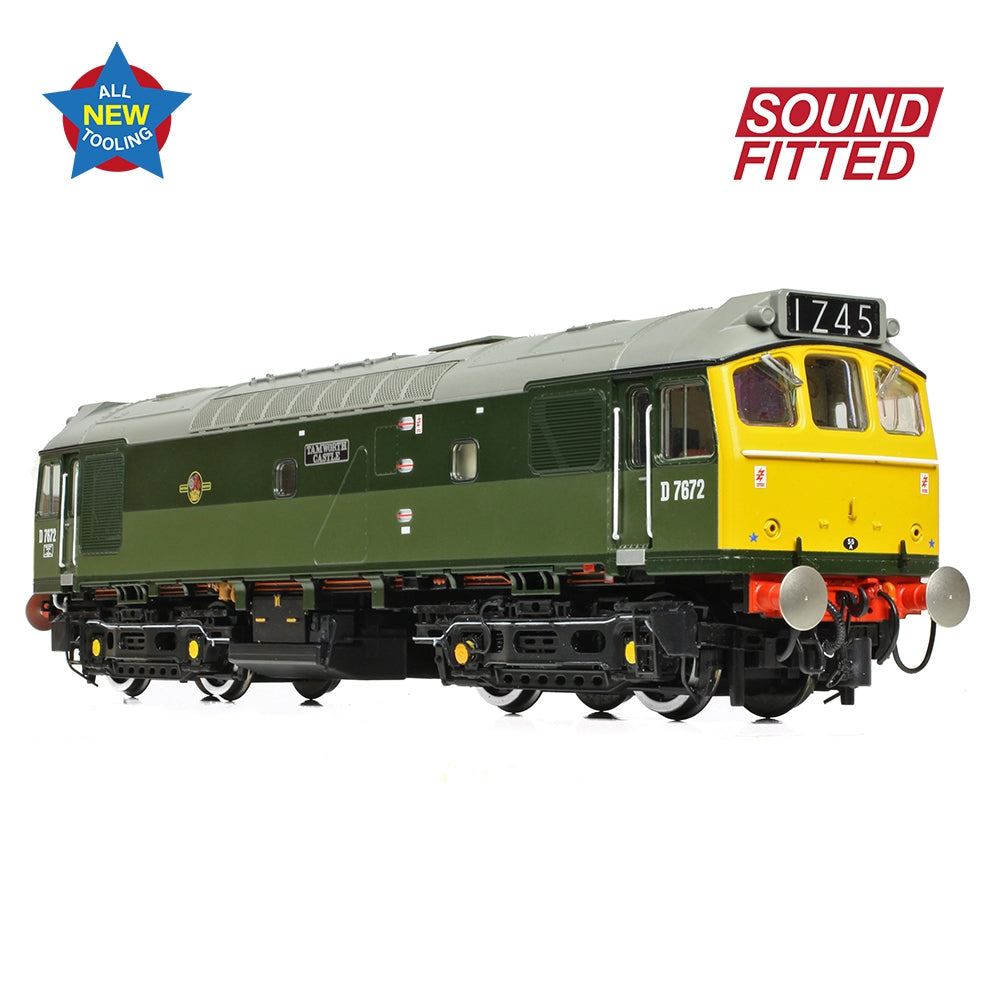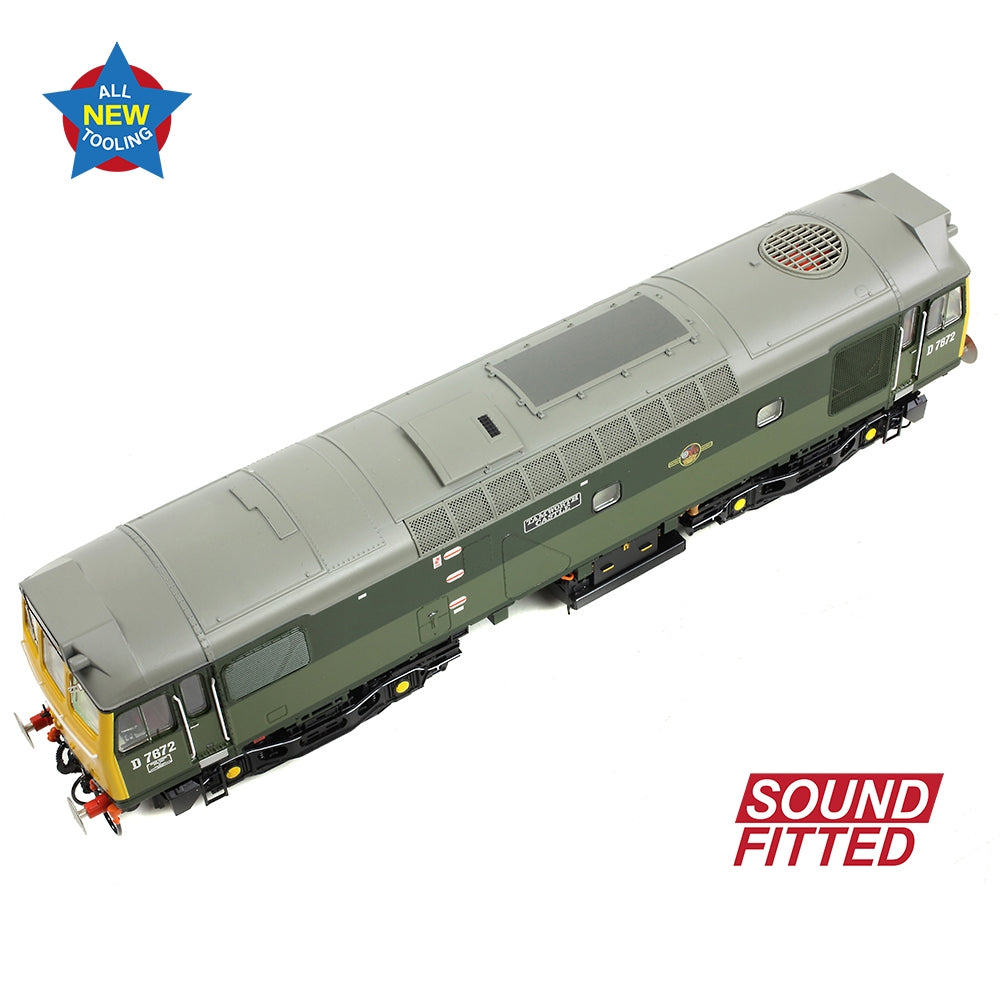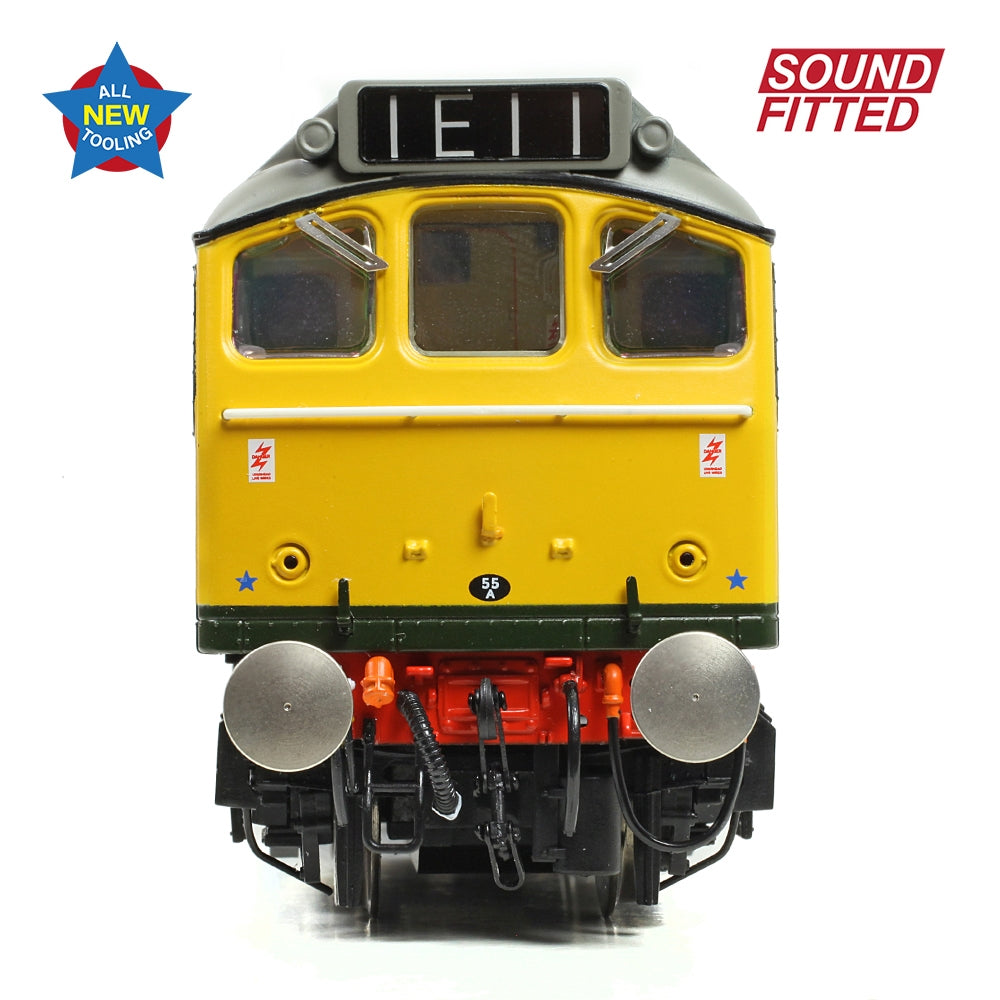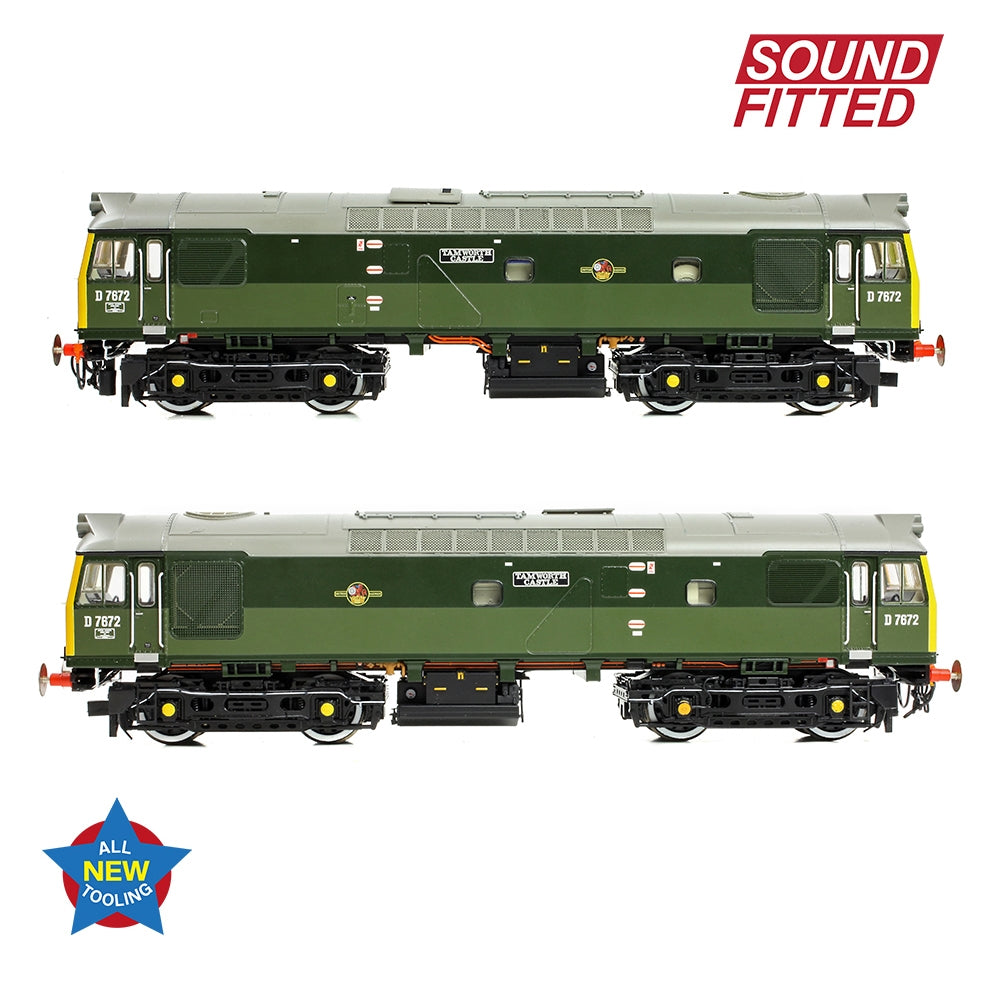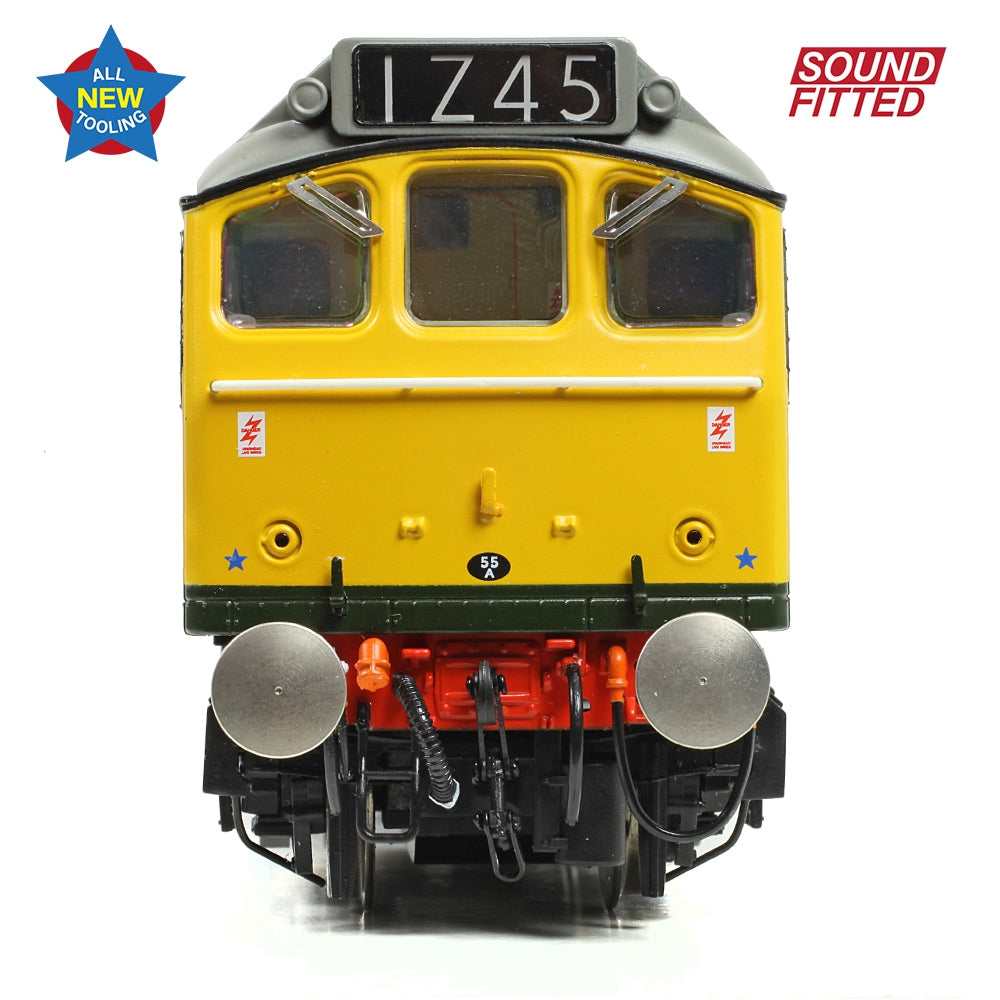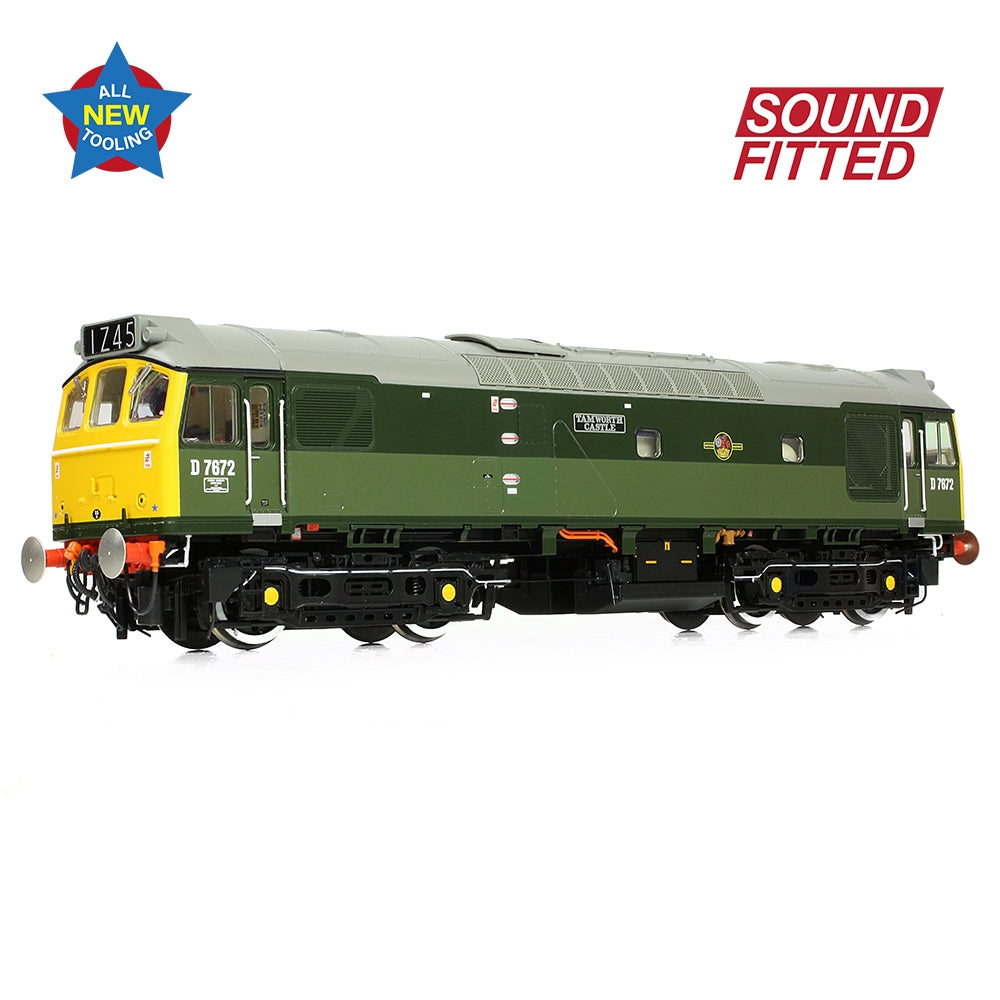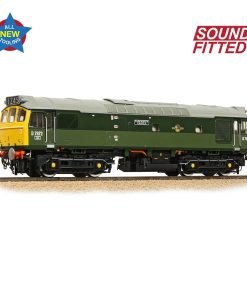BRANCHLINE Class 25/3 D7672 ‘Tamworth Castle’ BR Two-Tone Green (Full Yell. Ends) BRANCHLINE
$ 309,95 $ 92,98
BRANCHLINE Class 25/3 D7672 ‘Tamworth Castle’ BR Two-Tone Green (Full Yell. Ends)
The Class 25 Diesel Locomotive has long been a fixture of the Bachmann Branchline OO scale range, but this all-new model owes nothing to its predecessors. Designed from the rails up, this new family Class 25s from Bachmann Branchline encompasses Class 25/1s, 25/2s and 25/3s, capturing the differences – some small, some anything but – between the three distinct types. Regardless of the particular locomotive being depicted, every model features high fidelity mouldings and numerous separately fitted parts, with the utmost attention to detail paid to the features of the prototype.
Our new Class 25 is brought to life with an exquisite livery application using true-to-prototype colours, fonts and logos. Following the precedent set by the Bachmann Branchline Class 47, and subsequently the 37 and 31 too, the Class 25 features a full lighting suite and is available in three formats; standard, SOUND FITTED as in the case of this example which is pre-fitted with a DCC Sound Decoder, or SOUND FITTED DELUXE with the award winning motorised radiator fan and authentic tinted windscreen glazing features!
- Bachmann Branchline OO Scale
- Era 8
- Locomotive is now Preserved
- Pristine BR Two-Tone Green (Full Yellow Ends) livery
- Running No. D7672
- SOUND FITTED– Fitted with a Zimo MS450P22 DCC Sound Decoder
- Length 202mm
Analogue Users: Please note that normal load running sounds and any other automatic or randomised sounds will also operate when this model is used on analogue control (DC) straight from the box!
CLASS 25 HISTORY
Following publication of the British Railways Modernization Plan in 1955, the British Rail Class 25 diesels were introduced into service in 1961 and were more powerful than the Class 24 Bo-Bo diesels introduced three years earlier. A total of 325 Class 25 Diesel Locomotives over several sub-types were built, most at BR Derby, but some were constructed at Crewe and Darlington with a further 26 built by Beyer Peacock of Manchester.
As Type 2 locomotives, the Class 25s were often seen working in pairs to increase operational power. The class was, however, a true mixed traffic locomotive, equally at home on either passenger or mixed freight duties. They were well suited to the task of replacing steam traction on duties over a wide area of the British Railways system and were allocated to numerous depots across the Eastern, London Midland, Scottish and Western Regions. Although not allocated to the Southern Region, they were often seen on incoming and through traffic from the other regions. Following closure of numerous lines in the late 1960s and the resultant loss of passenger work, during the 70s & 80s they were more likely to be seen on either freight, newspaper, parcels or specialized duties. with notable examples including the provision of train heating for steam hauled specials in their swansong years. The Class was finally withdrawn from service in 1987, but twenty preserved locomotives survive to the present day.
Quick Shipping and Professional Packaging
Due to our long-term partnership in a long-standing partnership with UPS, FedEx, DHL and many other leading global carriers, we are able to offer an array of shipping options. Our warehouse staff are highly trained and will pack your products according to our precise and precise specifications. Your items will undergo a thorough inspection and be securely secured prior to being delivered. We ship to thousands clients each day across multiple countries. This is an indication of our dedication to being the biggest online retailer in the world. The warehouses are located in Europe as much as they are in the USA.
Note: Orders that include more than one item are assigned a processing time in accordance with the item.
Prior to shipment before shipping, we'll inspect thoroughly the items you've ordered. The majority of orders are shipped within 48 hrs. The time to deliver varies from 3-7 days.
Returns
We don't manage the stock in our warehouse and factory. Stocks are subject to change at any moment. You may not receive your order after the order has been made.
Our policy is for 30 days. If you have passed 30 days by since your purchase, unfortunately we can't offer you a refund or exchange.
The item cannot be used and in its original condition. It should also be in the original packaging.
Related products
RADIO CONTROL
RADIO CONTROL
RADIO CONTROL
RADIO CONTROL
RADIO CONTROL
RADIO CONTROL
RADIO CONTROL
RADIO CONTROL
RADIO CONTROL
RADIO CONTROL
RADIO CONTROL
RADIO CONTROL
(Clearance Item) HB RACING 44mm Heavy Duty Universal Drive Shaft/Rear/Steel/2Pcs HB RACING
RADIO CONTROL
RADIO CONTROL
RADIO CONTROL
